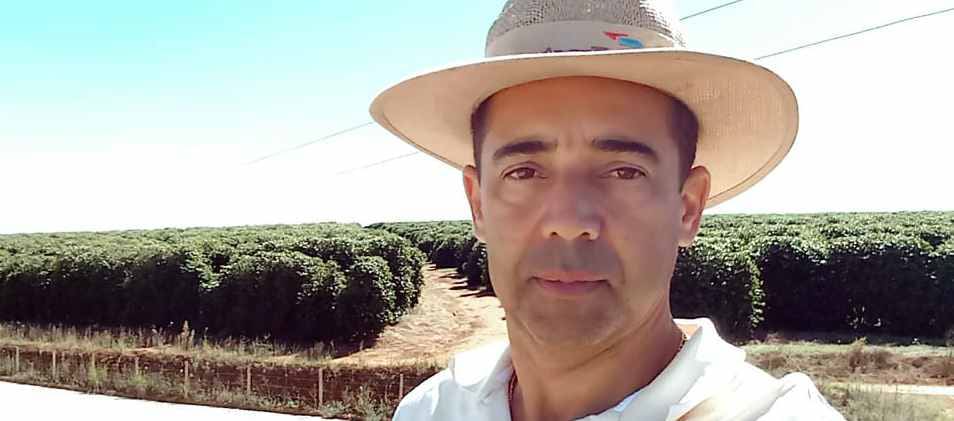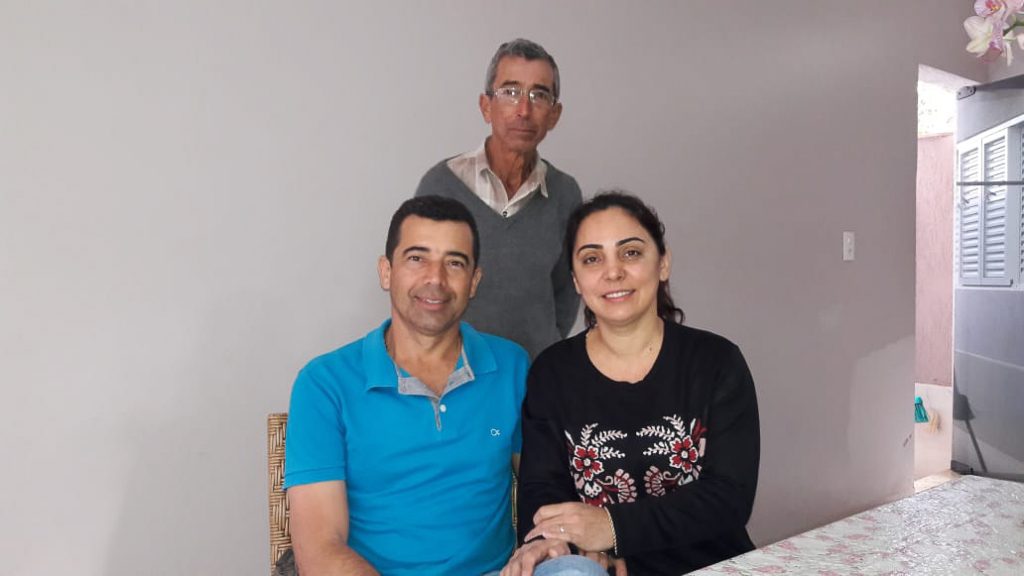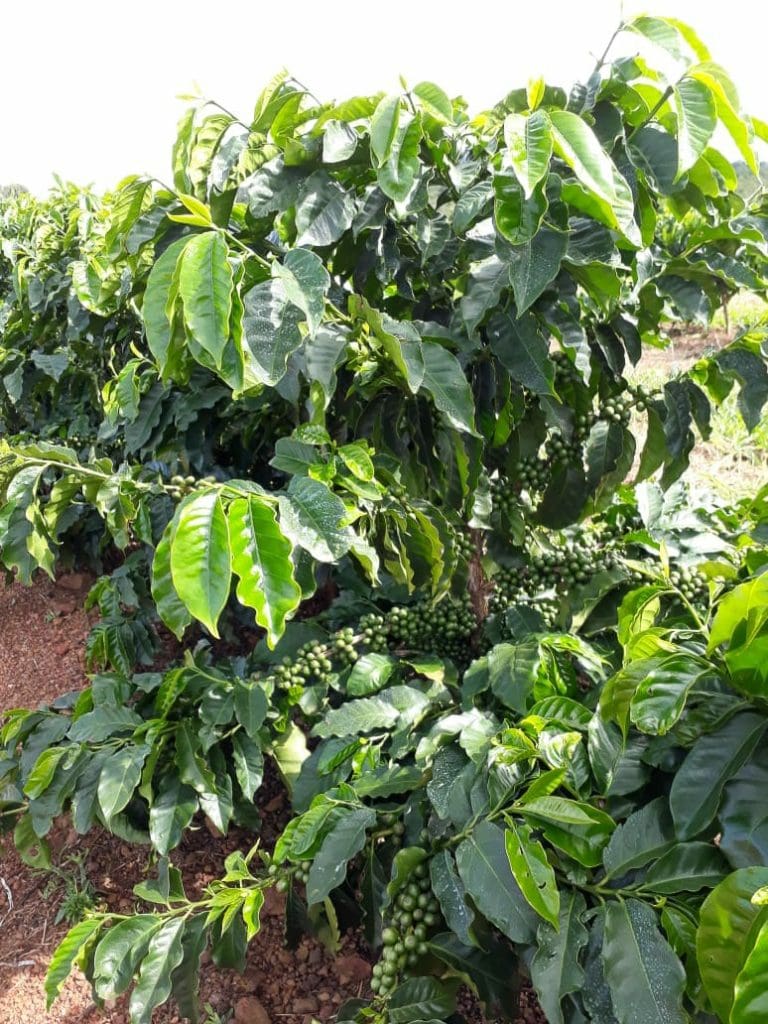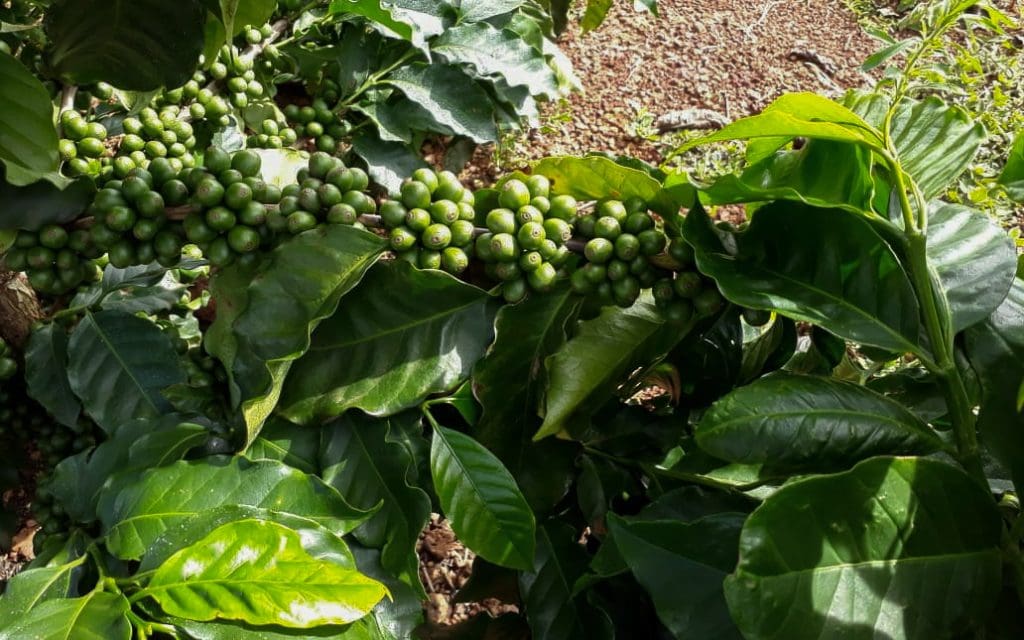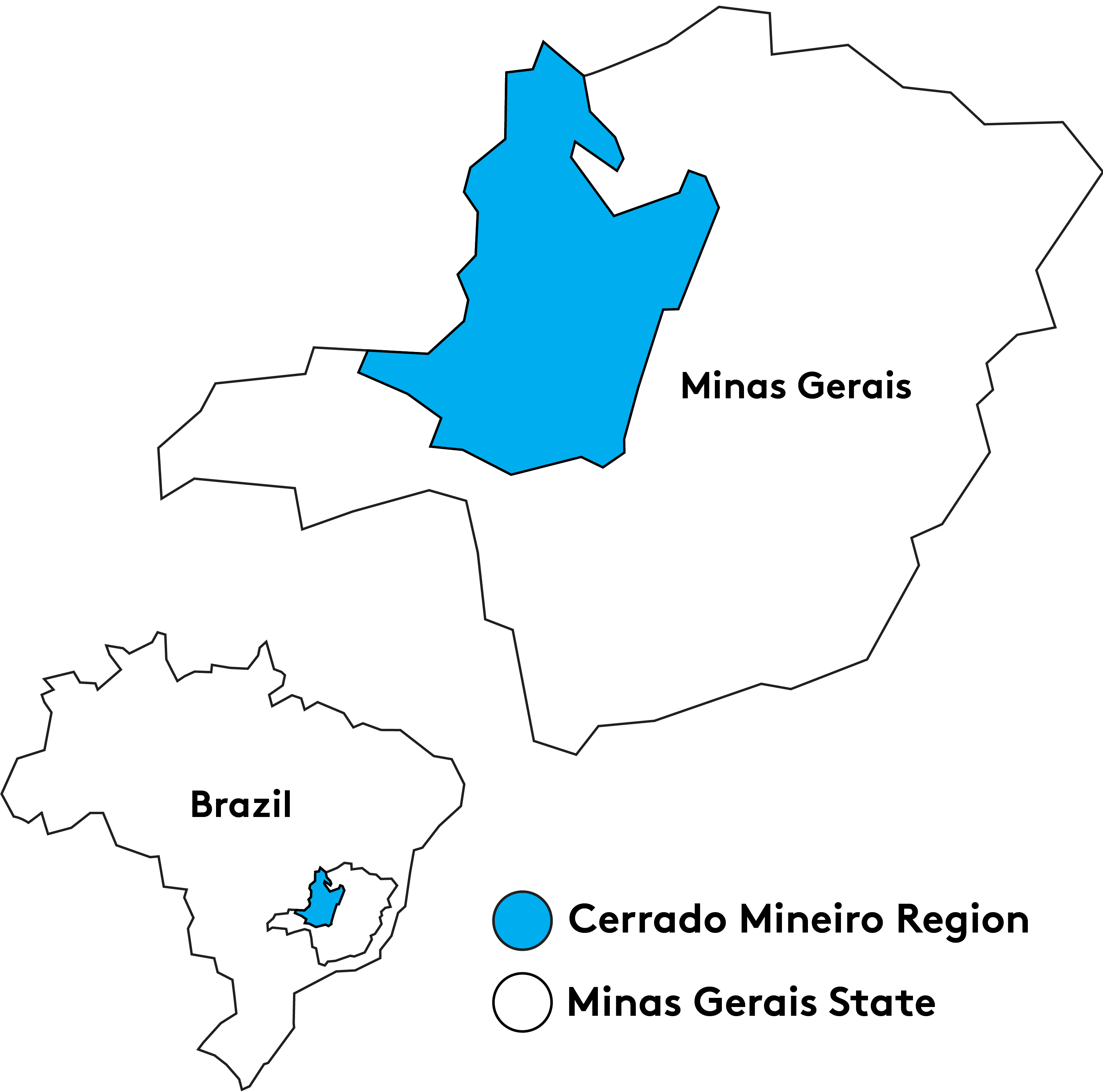Region
Cerrado Mineiro DO
The Cerrado Mineiro region, located in northwest of Minas Gerais State is a world-recognized, high-quality coffee producing origin and became the first Protected Geographical Indication in Brazil in 2005, with full Designation of Origin in 2013. A strong characteristic of this region is its well-defined seasons—a hot, wet summer followed by a pleasantly dry winter. The dry climate during harvest eliminates potential problems with humidity during the drying process.
Minas Gerais is Brazil’s principal agricultural state, and the Cerrado is home to many of the country’s celebrated coffee estates, with expertise in planting, harvesting, drying, and sorting. We love Cerrado coffees for their big body, rich chocolate notes, and velvety texture when pulled as espresso.
Today, the area’s 4,500 farmers produce a combined average of 6 million bags per harvest, with an average of 35 bags per hectare. To reach these production levels, producers had to first adapt to the region’s conditions. Coffee farmers first arrived in Cerrado in the 1970’s, after being pushed out of the state of Parana by frost and out of the state of São Paulo by nematodes. They found the soil in Cerrado to be very acidic, which they rectified with the application of calcium to create the healthy soils they enjoy today.
Cerrado coffee farms are cultivated in areas with elevations varying between 800 and 1,300 meters above sea level and are known for consistently producing high quality coffees with a repeatable profile. Independent of farm size, the spirit of professionalism is present throughout Cerrado’s coffee producers. Entrepreneurialism is part of farmers’ DNA, and many producers are second or third generation growers who also hold degrees in agronomic engineering, business management, and administration. While each family narrative is different, Cerrado is characterized by an enterprising attitude.
The Cerrado Mineiro Designation of Origin recognizes demarcated territory that produces a product with unique characteristics not found anywhere else. In Brazil, the recognition of the Designation of Origin is made by the INPI – National Institute of Industrial Property. The Cerrado Mineiro Region Designation of Origin includes 55 municipalities that produce coffee with a special cup profile. Coffees from Cerrado Mineiro have a unique identity and quality resulting from the combination of climate, soil, terrain, altitude and know-how of people, from producers to agronomists to warehouse engineers.
In Cerrado Mineiro, there are 234,000 hectares in production, more than 102,000 of which are certified by the Designation of Origin program, and 68,000 hectares use irrigation systems. Coffee from Cerrado Mineiro represents 14.4% of Brazilian production and more than 25% of Minas Gerais production. There are 4,500 coffee growers in Cerrado, and the program represents more than 1,000 producers and farms, and between 60,00-100,000 bags depending on the harvest.
To bear the Cerrado Mineiro designation of Origin seal, coffees meet the following criteria: produced within the defined Cerrado Mineiro area, grown above 800 meters above sea level, variety of Arabica coffee, producer member of one of the 9 cooperatives or 6 associations that make up the Cerrado Coffee Growers Federation, compliant with all Brazilian agricultural best practices laws, cup above 80 points SCA, and be stored in an accredited warehouse. Every year, the third party Totum Institute audits the Cerrado Mineiro Designation of Origin, guaranteeing all procedures adopted in its regulations of use and operation.
